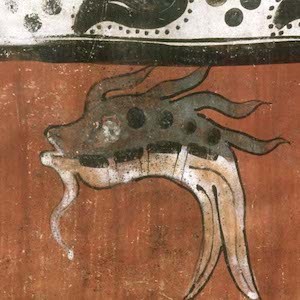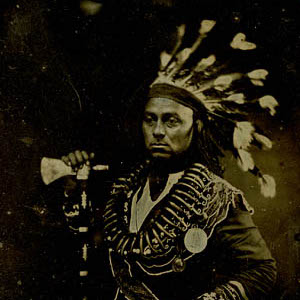Culture

A PreColumbian Portfolio: An Archive of Photographs
Each database record includes a caption, a brief (about 20-word) description, and information on the culture associated with the artifact, such as Maya, Olmec, or Zapotec.
Maya Vase Database: An Archive of Rollout Photographs
The vases include scenes of palace life, mythology, warfare, and animals.
Framing Canada: A Photographic Memory
The images, dating from 1843 to the mid-20th century, come from government, commercial, and private sources.
Great Unsolved Mysteries in Canadian History
Students may begin by focusing on 'solving' the crime itself, but along the way will be drawn into the consideration of wider issuesBiography of Empress Deng
This biography details the childhood of Empress Deng of the Later Han dynasty. Here she is noted for her precocious intelligence, beauty, and filial piety. She was named empress to Emperor He in 102 CE.
The Book of Rites, The Birth of a Child
The "Patterns of the Family," is drawn from The Book of Rites, a text that defined Confucian rituals of all kinds.
Learning begins in the Womb: Fetal Instruction
Han dynasty intellectuals such as Liu Xiang (c. 77-6 BCE) advocated "fetal instruction" [taijiao] as a means to influence the moral development of the child at the earliest possible opportunity.

Marxists Internet Archive
Because the Archive offers such a wide-ranging set of sources from the Marxist tradition, students can be encouraged to explore cross-cultural comparisons.The Child in Early Chinese Social Hierarchy: The Biography of Li Shan
The society of early China was organized into a hierarchy where elders were generally deemed superior to and expected deference from their juniors, principles that also guided the relationship between men and women, parents and children, and nobles and commoners.
Sieyès, "What Is the Third Estate?" (1789)
Emmanuel–Joseph Sieyès was born at Fréjus, 3 May 1748. He was educated at a Jesuit school, became a licentiate of the canon law, and was appointed vicar–general by the bishop of Chartres.